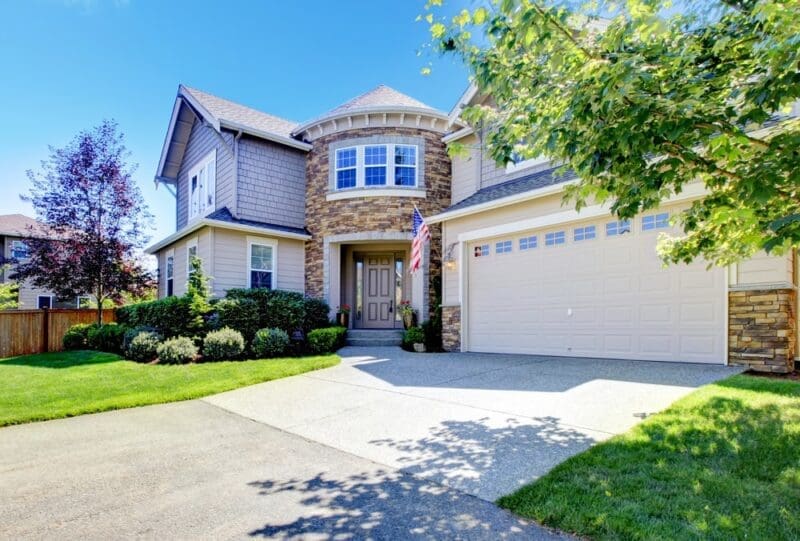Ask anyone with financial goals, and we can guarantee that buying their first-ever real estate property is one of the biggest milestones in their investment plans, second only to managing a business or pursuing a promotion in their full-time career. And that’s because owning an actual property you can visit, touch, and have a roof over your head feels a lot more impactful than reaching a number with your money market account or maxing out your retirement plans.
However, despite how lucrative and profitable investing in the real estate market looks on paper, the vast majority of newbie investors and finance enthusiasts still at the early stages of wealth management are unsure when it is the right time to invest.
To help bridge the gap in knowledge and hopefully raise more awareness on the subject matter, we’ll be going over some of the things you need to do first and what constitutes the “right time” for everybody depending on their respective financial situations.
First, Check Your Personal Finances
To start, the very first thing on your checklist is evaluating your personal finances and identifying any loose ends, unnecessary expenses, and unpaid debt that could be holding you back. Remember, paying the down payment for a mortgage is by no means easy. Unless you’ve got quite the outstanding credit rating to back it up, you might be paying a lot more than you expect for your first property.
As a result, if you’re still working through a shopping addiction or constantly have trouble with impulse buying, focusing on self-improvement and creating a safety net should take priority instead.
But, if you have your personal finances tied down and are perfectly fine in terms of an emergency savings fund, you can proceed to the next box on the checklist, which is taking your time to learn the trade of real estate investing.
Second, Take Your Time Learning the Ropes
Although reading up on books, investing long hours in house hunting, understanding the current state of the markets, and taking advice from seasoned veterans of the real estate game is a lot more boring in practice than what you see marketed online, it’s a necessary part of the process. You see, nobody is born in this world with an eye for good properties, and while you may have good design sense, there’s only so much you can achieve until the lack of experience becomes a limiting factor.
For your very first property, you want to be as prepared as can be to avoid any mishaps along the way, even if some challenges are inevitable. The goal is to limit your exposure to risk and errors to facilitate that things go smoothly and help you find that one piece of real estate that captures your heart and mind.
What Your First Investment Property Should Look Like

Once you have both of the checkboxes mentioned above done and sealed, the next order of business is deciding what type of investment property you would like first. Specifically, the choices we recommend would be (1) homeownership, (2) rental properties, and (3) house hacking, and each of them carries distinct benefits which may be a lot more suitable for you depending on your situation.
Rental properties are appealing when they promise large returns, but they also require careful management and long-term commitment. Entrepreneurs getting into the hemp business often look for cannabis real estate financing options so they can acquire land, farms, or other types of properties suited for cultivating or distributing cannabis products. Diversifying your portfolio with properties related to the cannabis industry can provide both stability and growth, particularly as the market continues to expand. Be sure to research the regulations and potential challenges before diving into this specialized investment opportunity.
The Appeal of Homeownership
Everybody wants to own a home they can call theirs. If you have the money and papers to secure a good deal with a beautiful property, it’s one of the best investments you can make. Homes naturally appreciate in value, and when situated in a really great location close to important amenities and easy access to the city, their value will skyrocket alongside development. Of course, all of this hinges on the decision of you moving in and weighing the opportunity costs of choosing something else.
Extra Income Through Rentals
Besides moving into the home yourself, you could fix it up a bit and transform it into a rental, essentially earning you a net profit after subtracting mortgage costs and other related expenditures. However, if the price of a home is a bit too much for you, investing in high-end condo units and smaller housing units also makes excellent rental properties at a lower price. The downside is you might need to do a bit more research on HOA-specific rules and owner-occupancy rates to see if your investment is in good hands.
House Hacking with Multifamily Homes
Last but not least, if you want to own a home and also like the prospect of earning through rentals, the house hacking strategy is an excellent approach you can take for your first real estate investment. In essence, you’re on the lookout for multifamily homes that don’t need a lot of renovation to put up for rent. Meanwhile, you can move into the second part of the property, theoretically living there for free because the rental offsets the living costs.
Of Course, Don’t Forget to Diversify
Nevertheless, while real estate investing and house hunting sound really fun and exciting to do, don’t forget to diversify your portfolio and continue investing in other securities to increase your wealth. Real estate, although profitable, is by no means perfect, so always balance things out with retirement plans, savings, stocks, mutual funds, and bonds.




Comments are closed.